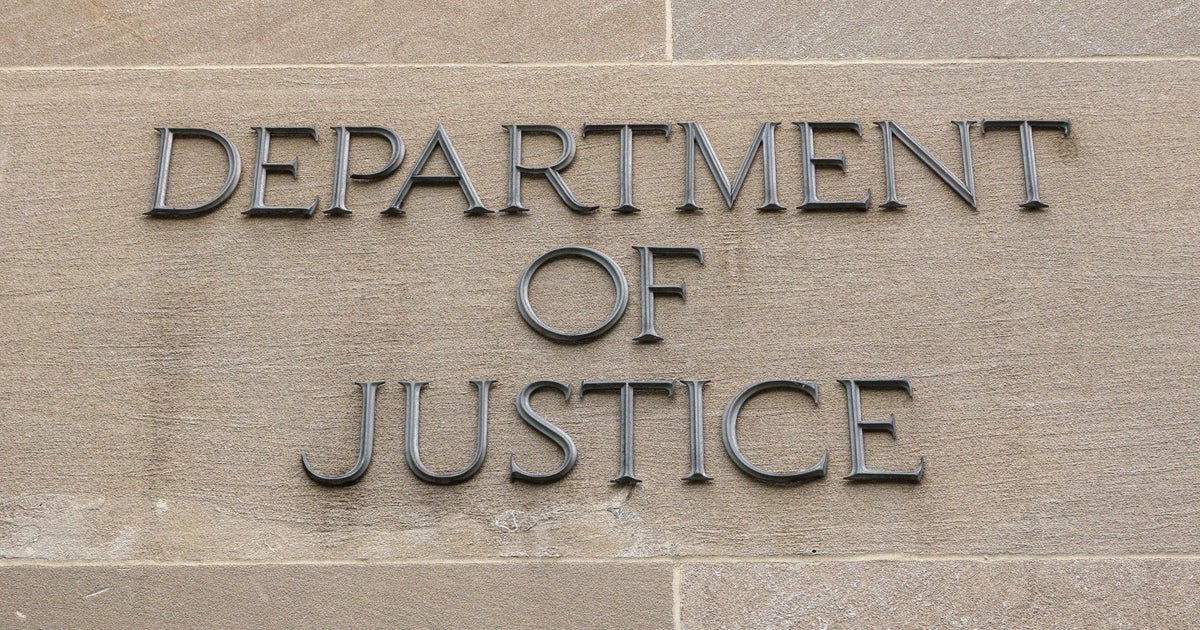

No response returned

An ousted Justice Department attorney told Congress that senior department officials, including a former acting deputy attorney general, discussed defying federal court orders and withholding information from judges to advance the Trump administration's immigration priorities, according to a whistleblower complaint filed Tuesday.
The attorney, Erez Reuveni, a veteran of over 14 years at the department who had been praised and promoted for his service, was earlier this year after his attorneys say he pushed back against three different Justice Department attempts to "defy" immigration-related court orders "through lack of candor, deliberate delay, and disinformation."
While Reuveni has not spoken publicly about his departure, a sent to senior congressional leadership by his attorneys details how he says he was "threatened, fired, and publicly disparaged" in his final weeks in the department after he questioned instructions from top Justice Department officials to ignore court orders and misrepresent facts in court in three separate, high-profile standoffs between the department and federal judges over immigration cases. Among those officials was the No. 3 Justice Department official, Emil Bove.
Bove nominated in May by President Trump to sit on the 3rd Circuit Court of Appeals and is scheduled to appear for his confirmation hearing before the Senate Judiciary Committee Wednesday. Before his stint as a top Justice Department official, Bove represented Mr. Trump in his criminal trial in Manhattan last year.
Reuveni's attorneys described in his complaint a meeting with Justice Department officials about contesting possible court orders blocking deportations under the Alien Enemies Act. He alleged that Bove, who at the time was principal assistant deputy attorney general, said that the department "would need to consider telling the courts 'f*** you' and ignore any such court order," and that the deportation "planes needed to take off no matter what."
"Mr. Reuveni was in disbelief," his attorneys wrote, adding that others in the room were "stunned" by the suggestion that the Justice Department would tell its clients in the government to disobey court rulings against the administration.
A day after the meeting, the complaint said, a Washington, D.C., federal judge the Trump administration's use of the Alien Enemies Act to deport alleged Venezuelan gang members to El Salvador and ordered planes carrying the men to return back to the U.S. The Trump administration .
Reuveni also said that Drew Ensign, one of his supervisors, knowingly told a judge that he didn't know if more Alien Enemies Act removals were underway — even though Ensign was present for the Justice Department meeting when Bove told his team the deportations would continue.
After repeatedly voicing concerns in phone calls and emails that the Department of Homeland Security and Justice Department had violated the court's orders by not returning the migrants, Reuveni said he received a phone call from a DHS attorney telling him to "consult DOJ leadership if he had any questions" about the decision.
In a separate incident days later, Reuveni's attorneys allege that he was "told to stop asking questions" by senior Justice Department leaders after he attempted "to ascertain whether DOJ had violated a court order" in Massachusetts that blocked the removal of migrants to third-party countries with no due process, after he saw evidence that the removals were still underway.
The complaint says that Yakov Roth, an assistant attorney general, called Reuveni to tell him that "Bove was very unhappy" that he was looking into why the removals had continued, in spite of a nationwide injunction blocking them.
And in April, Reuveni unsuccessfully argued in defense of the controversial of Kilmar Abrego Garcia, admitting in court that the man "should not have been removed" from the U.S. to El Salvador.
In the days leading up to an initial hearing in Abrego Garcia's case, Reuveni's attorneys say he "repeatedly and consistently requested updates on efforts to secure Mr. Abrego Garcia's return to the U.S. and assurances of his safety," in the Salvadoran supermax prison where he was being detained.
Those efforts were stonewalled, the attorneys say, after Reuveni was told by his bosses to "stop asking for facts supporting any possible defense of the case," despite raising "concerns in multiple emails to both DHS and DOS about the sufficiency of the evidence to support Mr. Abrego Garcia's alleged gang affiliation and the lack of action to correct his erroneous removal."
After Reuveni conceded in court that Abrego Garcia should not have been removed, a Maryland judge ordered him to be returned to the United States. As a result, a supervisor told Reuveni that the White House had questions as to why he didn't argue that Abrego Garcia was an alleged gang member and that the removal was justified, despite a court order to the contrary.
Hours later, department leadership asked Reuveni to sign an appeal brief of the Maryland judge's order. He says he refused, telling a supervisor that he "didn't sign up to lie."
Reuveni was placed on administrative leave shortly afterwards for, according to a letter signed by Deputy Attorney General Todd Blanche, "failure to follow a directive from your superiors; failure to zealously advocate on behalf of the United States; and engaging in conduct prejudicial to your client."
After the news that Reuveni had been put on leave became public, Attorney General Pam Bondi said in a statement to TheNews that "every Department of Justice attorney is required to zealously advocate on behalf of the United States. Any attorney who fails to abide by this direction will face consequences."
Less than a week later, Reuveni was fired.
Reuveni's attorneys said that the consequences of the Justice Department actions alleged by Reuveni "have grave impacts not only for the safety of individuals removed from the country in violation of court orders, but also for the constitutional rights and protections of all persons – citizen and noncitizen alike – who are potential victims of flagrant, deliberate disregard of due process and the rule of law by the agency charged with upholding it."
The whistleblower account was first by the New York Times.
In a post on X following the article's publication, Deputy Attorney General Todd Blanche said Reuveni's account contains "falsehoods purportedly made by a disgruntled former employee," and said he was in the meeting where Bove allegedly said he would not follow court orders. Blanche said that "at no time did anyone suggest a court order should not be followed."
The Justice Department also defended Bove's handling of the deportation cases.
"Having entered office with a mandate to end the invasion of illegal alien criminals, Emil Bove has been a relentless advocate for the enforcement of our immigration laws and the removal of violent killers, terrorist gang leaders, and child predators, all of whom should never have been allowed to invade our borders, which is why Emil will be an outstanding federal judge to keep our country safe and uphold the rights of all Americans," the department said in a statement.
A statement by Sen. Dick Durbin, the top Democrat on the Senate Judiciary Committee, said Reuveni's claims "not only speak to Mr. Bove's failure to fulfill his ethical obligations as a lawyer, but demonstrate that his activities are part of a broader pattern by President Trump and his allies to undermine the Justice Department's commitment to the rule of law."





